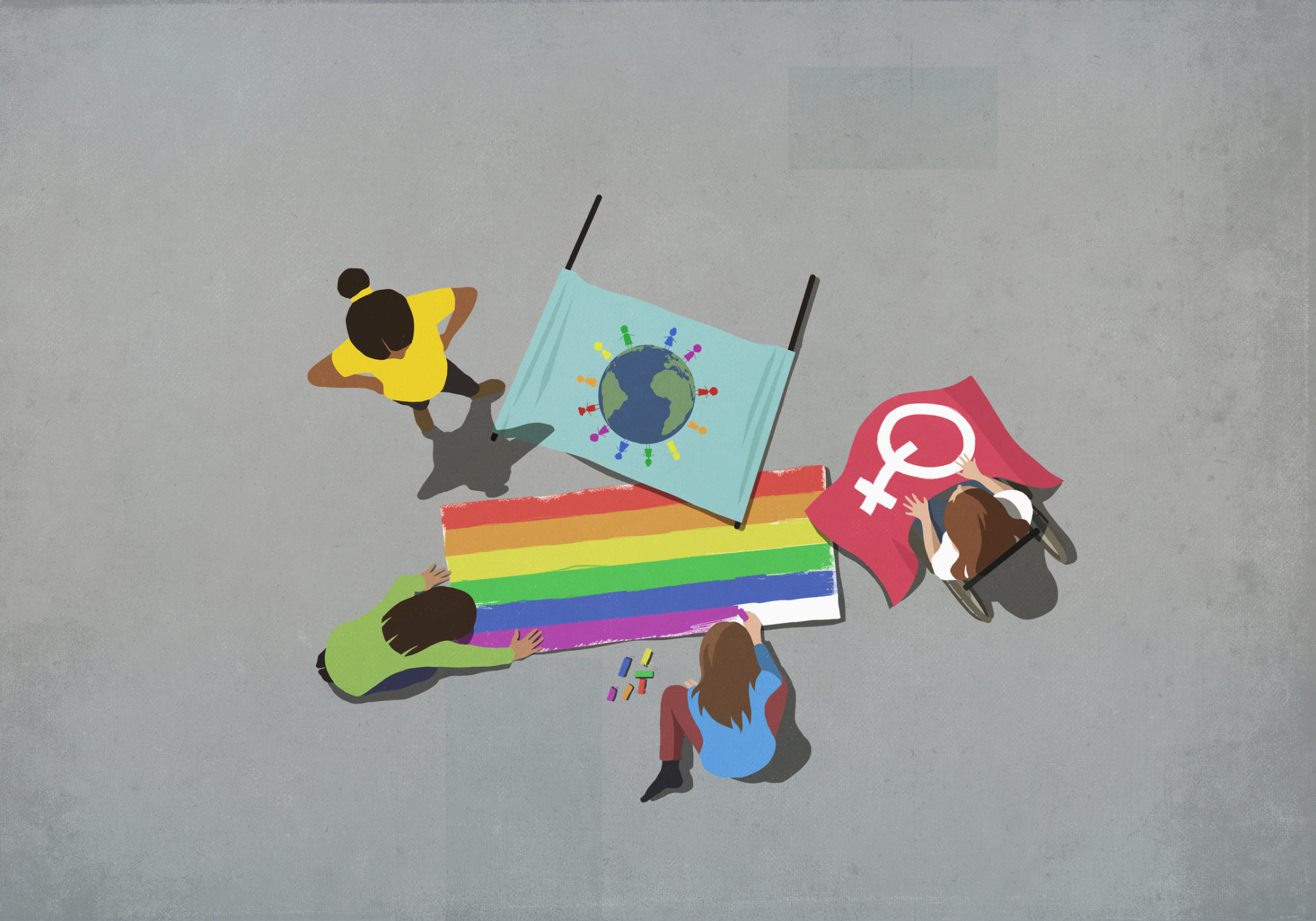While many of the bills put forth will face significant legal challenges, the message they were drafted to convey is chilling on its face: After decades spent winning new legal protections, the LGBTQIA+ community is no longer safe in America.
In Idaho, HB 675 seeks to make it a felony for parents or doctors to give hormones or puberty blockers to trans minors, reclassifying the act as “genital mutilation,” and attaching a maximum sentence of up to life in prison. In Iowa, Gov. Kim Reynolds in March signed the pernicious HF 2416 into law, which prohibits transgender youth from playing on sports teams that correlate to their gender identity. And on July 1 — just two days after a NationSwell hosted a panel discussion dedicated to “Protecting the Dignity of LGBTQIA+ Youth” — the Ron DeSantis-backed piece of legislation known colloquially as the “Don’t Say Gay” law went into effect in Florida, effectively banning public school teachers from any mention of sexual orientation or gender identity in the classroom.
During NationSwell’s mainstage event, Colorado Gov. Jared Polis — the first openly gay man to be elected governor of a U.S. state — used his opening remarks to call upon “all 50 states” to protect same-sex marriage in state law amid fears that the Supreme Court will soon revisit the landmark Obergefell v. Hodges decision. And panelists Carl Siciliano, founder of the Ali Forney Center, Sam Ames, director of advocacy and government affairs at The Trevor Project, and Janelle Perez, a Florida State Senate candidate — alongside moderator Lauren Baer, a managing partner for Arena — joined Polis in calling for swift action to affirm the dignity and protect the rights of queer youth.
Below are some of the key takeaways from the conversation.
Young people — particularly homeless queer youths — have always been at the heart of the fight for LGBTQ+ dignity. While the trans activists Marsha P. Johnson and Sylvia Rivera are most often credited with throwing the first brick during the Stonewall uprising of 1969, Carl offered the prescient reminder that the homeless queer youths hanging out in Sheridan Square that night were also instrumental in contributing the “lightning rod moment” that sparked the riots. As Siciliano noted: “Queer youth have always been at the center of the movement that launched our rights, and even 50 years later, we still have to work so hard to protect queer youth. It’s not just a smooth march towards progress.”
Pay attention to who is being left out of the conversation. As Ames noted, the Stonewall riots were about who was being disenfranchised and silenced — an important reminder we need to carry with us today in identifying the communities or groups most vulnerable to the constant string of attacks against the queer community. Sex workers, unhoused people, and incarcerated individuals who identify as LGBTQIA+ will all need special attention in the fight for dignity, and getting involved with and embedded in those communities at the local level will be more important than ever before.
The “gay agenda” exists, and it involves making the world safer for future generations. While conservatives frequently play political football with the idea of a monolithic “gay agenda” that seeks to trick and corrupt heterosexual children, Perez argued that the opposite is actually true. “‘You’re so worried about the gay agenda, but the gay agenda is just that we want to make things better for the generation behind us,” she said. “We’re all fighting for them to have a better life than we did, and we’re seeing that our fight isn’t over.” While GOP lawmakers frequently use the specter of the “gay agenda” to malign the LGBTQ+ community as predators and groomers in pursuit of their legislative agendas, Perez said that having conversations about a different type of agenda — one that seeks to protect queer and trans youth and their families — will need to be had loudly and often to counteract that political propaganda.
Trans girls — the “most marginalized of the marginalized” — are being targeted with particular ferocity. According to Ames, the discourse is currently being dominated by two primary groups: demagogues and dogmatists. While the dogmatists are the same religious crusaders who have long sought to undermine gay rights, the demagogues are relatively new as a phenomenon, and frequently use hate-mongering to fuel their aspirations for higher offices. Both groups have set trans girls in the crosshairs of their anti-gay agendas, targeting gender-affirming care — access to which has been proven to be highly correlated with suicide risk — with particular enthusiasm.
Mobilizing the politically apathetic will be a critical part of the fight to preserve LGBTQ rights. According to Siciliano, if the queer community and its allies hopes to protect the community from the legal threats it currently faces, they will have to engage people who are not typically politically engaged, using threats to freedoms as a galvanizing force.
“It’s without a doubt that LGBTQ youth are going to face more risk of homelessness, bullying, suicide; look in your local communities to those who are dealing with these issues and connect, try to protect the young people who are going to face the brunt of these attacks,” he said. “Do what you can to support the organizations working to protect young people.”
Take the fight offline. Posting infographics to Instagram won’t be enough; as Baer pointed out, the next phase of the fight will necessarily involve showing up in real life and engaging with communities directly. Although it’s still important to read, listen, and tweet when necessary, enshrining the dignity of LGBTQ youth must also involve practical tactics like supporting direct service organizations and, if you’re planning to run for office, attending political training sessions like those offered by Arena that can help you run a winning campaign.
“During this critical time, don’t sit back,” Lauren said. “Lean in and become involved, because everything really is on the line for the queer community.”

 "
"